The public is split over whether or not it's appropriate for Congress to extend an invite to a foreign leader at odds with the President
When House Speaker John Boehner extended an invitation to Israeli Prime Minister Benjamin Netanyahu to address Congress – without first clearing the invitation with the White House – many in the public responded in a partisan way.
Many agree with what Netanyahu may be likely to say in his speech to Congress – skepticism about better U.S. relations with Iran, criticism of the President’s Middle East policy, and strong support for Israel, but the latest Economist/YouGov Poll also indicates that only a third of the public find Congressional actions like the invitation to Netanyahu appropriate.
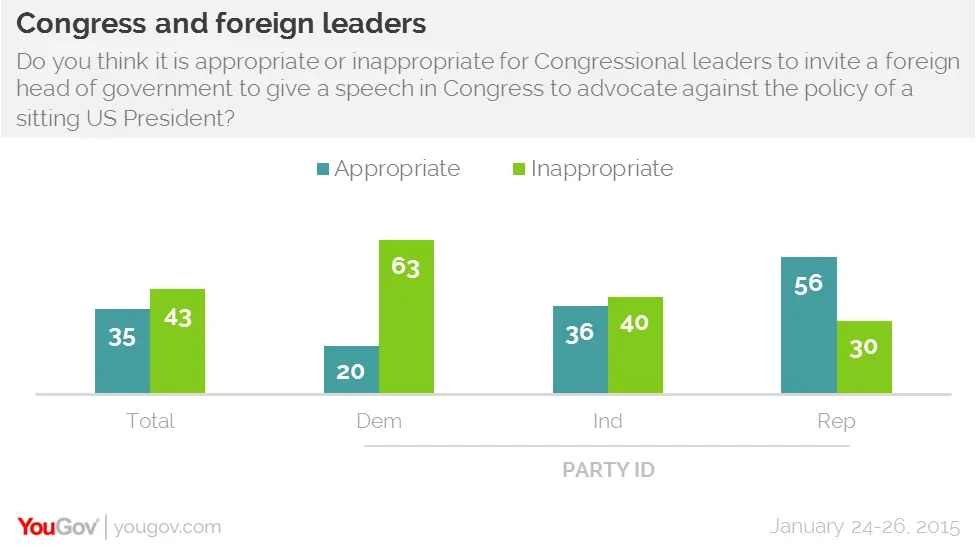
There are large party differences, with independents dividing almost evenly on the appropriateness of independently inviting foreign leaders who are likely to criticize a President’s policy to speak before Congress. There is also party crossover: nearly one in four Republicans finds invitations like this inappropriate; one in five Democrats do not.
Netanyahu’s likely message to Congress might be very well-received by the American public: 79% view Iran as unfriendly or an enemy, and 61% say it is a serious threat to the United States. Those opinions are more likely to be held by Republicans, but majorities of Democrats also agree that Iran is a threat – and not a friend to the U.S.
But despite their doubts about Iran, Americans of both parties approve of an international agree with Iran that would require it to freeze parts of its nuclear program in return for easing economic sanctions – even though most don’t trust Iran much to live up to any agreement, and many would rather use sticks, not carrots, to get Iran to lose its nuclear capacity.
There is a great deal of criticism of the way the Administration is handling Israel – more disapprove than approve of Barack Obama’s handling. More than two-thirds say protecting Israel should be an important goal of U.S. policy in the Middle East, and a third think the U.S. is not supportive enough of Israel. 41% say that Barack Obama’s policies have damaged U.S. relations with Israel.
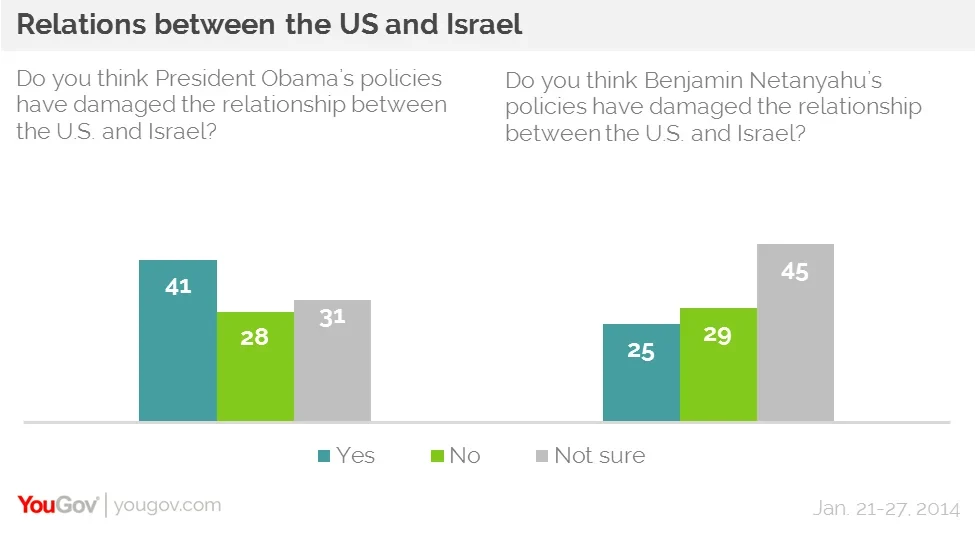
But Netanyahu does not necessarily escape criticism: one in four – and a majority of Democrats -- say his policies have damaged relations with the United States.
Congress is extending the invitation to the Israeli leader at a time when its popularity – though objectively very low – is at the highest level since 2009. In this week’s poll, 18% approve of the way Congress is handling its job; even more Republicans – 26% -- approve.
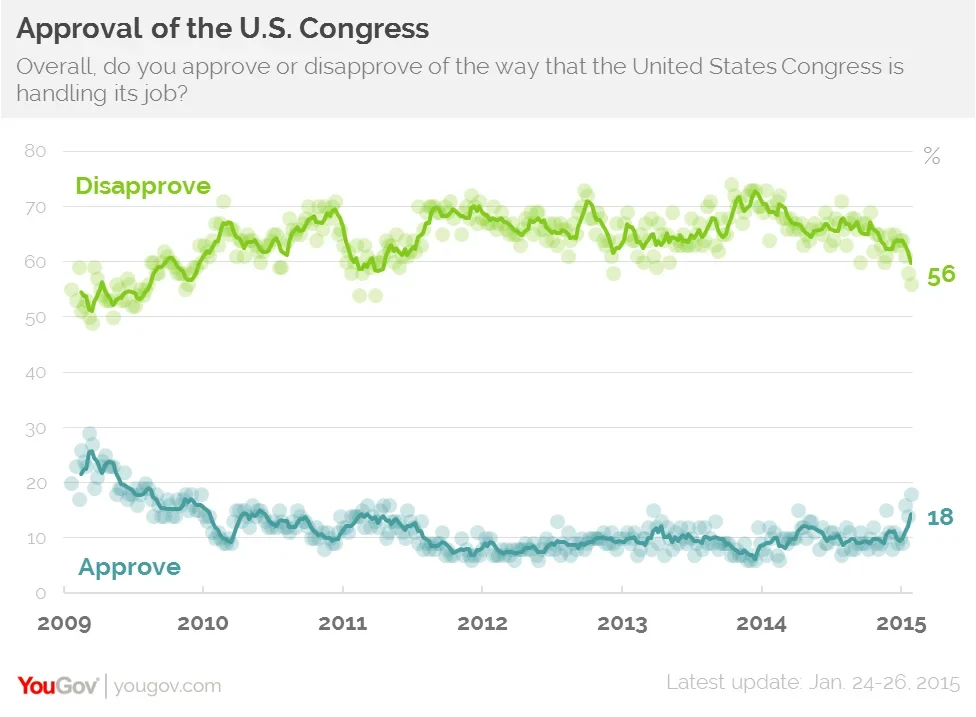
Opinions of the Congressional leadership, though still negative, also seem better than usual: this week less than half are unfavorable towards Speaker Boehner; only 39% have a negative opinion of Senate Minority leader Mitch McConnell. But Boehner and McConnell still much contend with significant dissension from their own party. 30% of Republicans have an unfavorable view of Boehner, 25% are negative towards McConnell.
There is only a limited amount of trust for Congress’s involvement in foreign policy, especially on Iran. The president has his detractors, but Congress has more. 47% say the President is motivated more by partisan concerns than by the best interests of the U.S. when it comes to determining policy on Iran. But 55% say this about Congress.
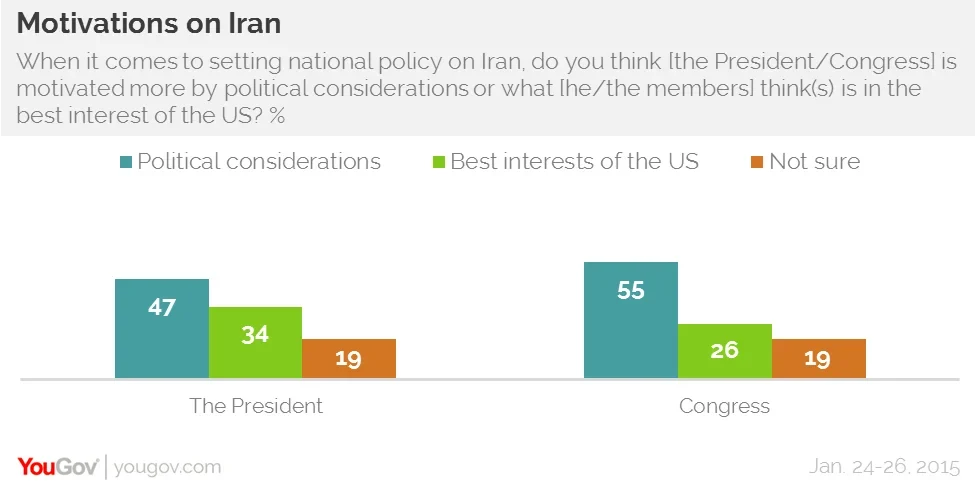
There are party differences, but even Republicans are suspicious of Congressional motives. Nearly half of them say members of what is now the Republican-controlled Congress are motivated by partisan considerations when it comes to national policy on Iran.
But there is plenty of distrust to go around. The President narrowly leads the U.S. Senate when it comes to whom Americans trust to negotiate treaties with other countries. But nearly as many Americans say they trust neither branch to do that. And that percentage is especially high among Republicans and independents.
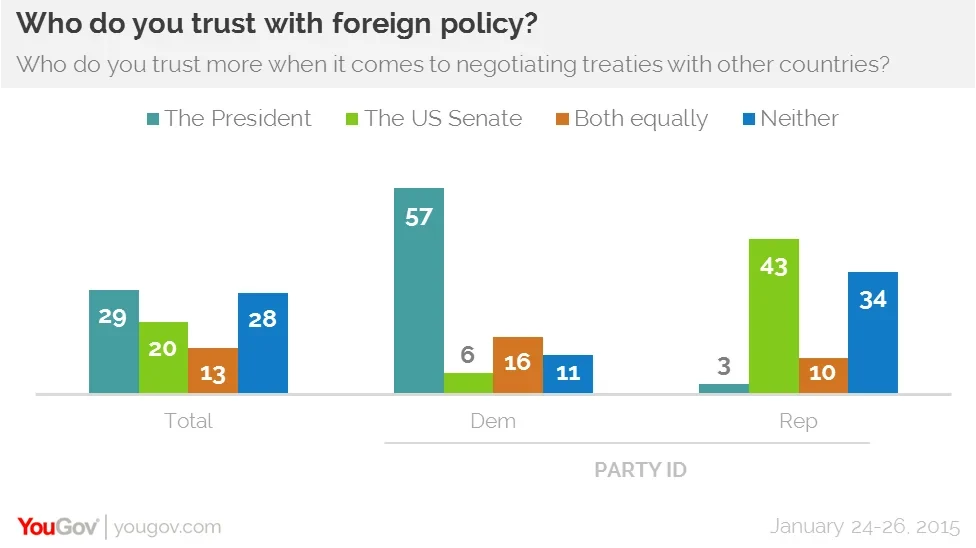
Americans side with the White House on the specific Netanyahu invitation. Less than half the public report having heard some about the invitation, though that could change as the invitation date, now at least a month away, draws closer. Right now, 36% say Congress can decide on its own – but 43% regard the Netanyahu invitation as a breach of protocol.
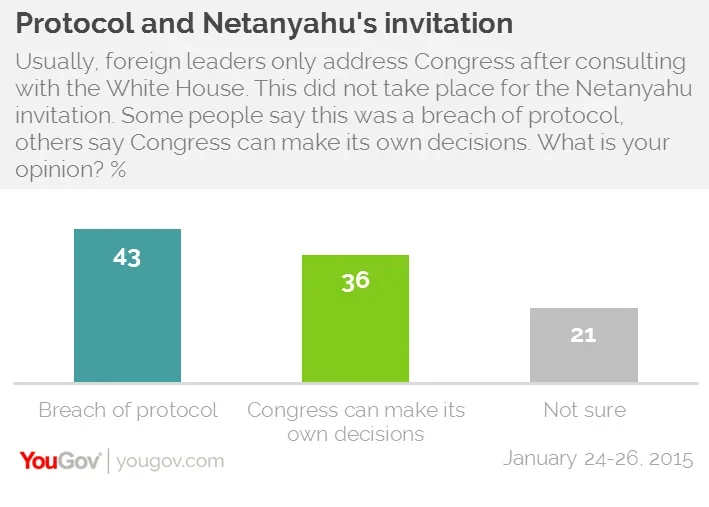
Economist/YouGov poll archives can be found here.








